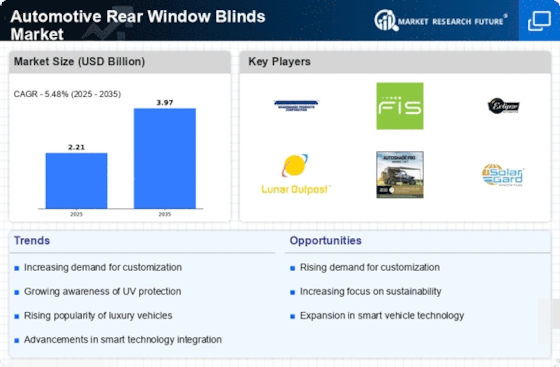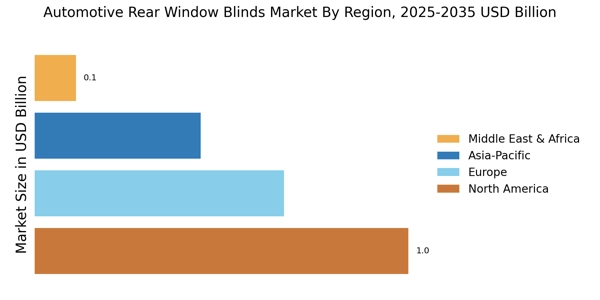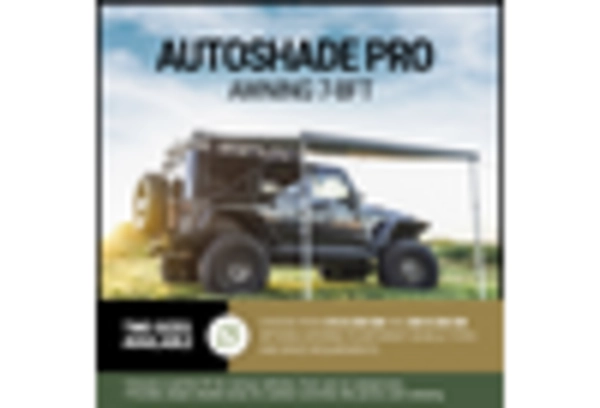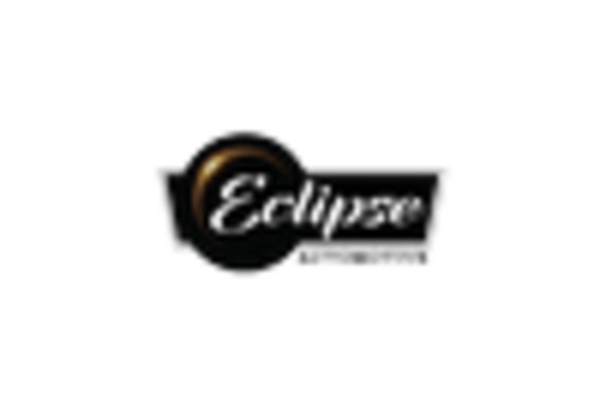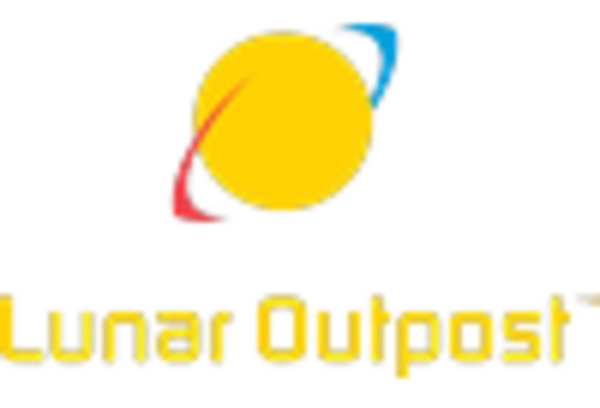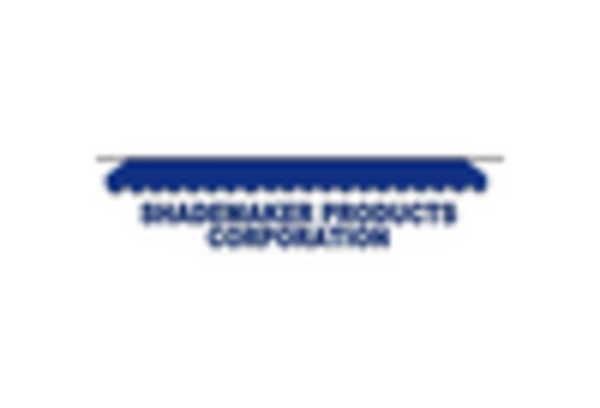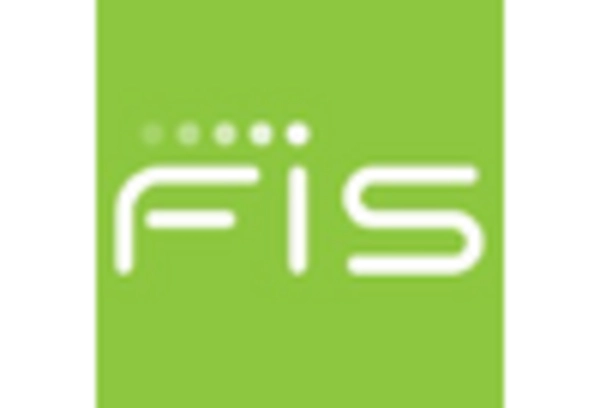Growth in Luxury Vehicle Segment
The Automotive Rear Window Blinds Market is poised for growth, particularly due to the expansion of the luxury vehicle segment. As consumers increasingly invest in high-end automobiles, the demand for premium features, including rear window blinds, is likely to surge. Luxury vehicles often come equipped with advanced technologies and comfort features, and rear window blinds are becoming a sought-after accessory that enhances both aesthetics and functionality. Market data suggests that the luxury vehicle segment has been growing steadily, with a significant percentage of new car sales attributed to this category. This trend indicates a promising opportunity for manufacturers in the Automotive Rear Window Blinds Market to cater to a clientele that values both style and practicality.
Rising Focus on Vehicle Interior Comfort
The Automotive Rear Window Blinds Market is benefiting from a rising focus on vehicle interior comfort. As consumers prioritize comfort during their driving experience, the demand for features that enhance the ambiance of the vehicle is increasing. Rear window blinds play a crucial role in regulating temperature and reducing glare, thereby contributing to a more pleasant driving environment. Market analysis indicates that consumers are willing to invest in accessories that improve their overall comfort, which is likely to drive sales in the Automotive Rear Window Blinds Market. This trend is particularly evident in regions with extreme weather conditions, where the need for effective temperature control is paramount.
Increasing Consumer Awareness of UV Protection
The Automotive Rear Window Blinds Market is experiencing a notable increase in consumer awareness regarding the harmful effects of ultraviolet (UV) rays. As individuals become more informed about skin health and the potential risks associated with prolonged sun exposure, the demand for rear window blinds that offer UV protection is likely to rise. This trend is further supported by studies indicating that UV rays can penetrate car windows, leading to skin damage. Consequently, manufacturers are focusing on developing blinds that not only provide shade but also block harmful UV radiation. This shift in consumer preferences is expected to drive growth in the Automotive Rear Window Blinds Market, as more vehicle owners seek to enhance their driving experience while safeguarding their health.
Regulatory Support for Vehicle Safety Features
The Automotive Rear Window Blinds Market is also influenced by regulatory support for vehicle safety features. Governments are increasingly recognizing the importance of enhancing vehicle safety standards, which includes the implementation of features that improve visibility and reduce distractions for drivers. Rear window blinds can contribute to this objective by minimizing glare and enhancing the overall driving experience. As regulations evolve, manufacturers are encouraged to incorporate such safety features into their designs. This regulatory support is expected to bolster the Automotive Rear Window Blinds Market, as compliance with safety standards becomes a priority for both manufacturers and consumers.
Technological Advancements in Blinds Manufacturing
The Automotive Rear Window Blinds Market is witnessing a wave of technological advancements that are transforming the manufacturing processes of rear window blinds. Innovations such as automated production techniques and the use of advanced materials are enhancing the quality and functionality of these products. For instance, the introduction of smart blinds that can be controlled via mobile applications is gaining traction among tech-savvy consumers. This integration of technology not only improves user convenience but also opens new avenues for customization. As manufacturers continue to invest in research and development, the Automotive Rear Window Blinds Market is likely to see an influx of innovative products that cater to evolving consumer preferences.


